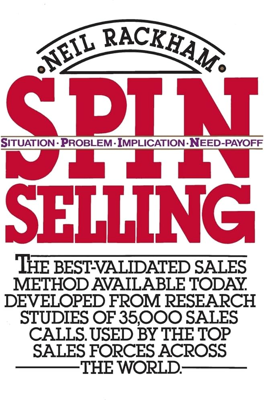Preventing Objections
Objection Handling vs. Objection Prevention
Neil Rackham's investigation into objection handling reveals that the traditional belief that objections indicate customer interest is misleading. Instead, top salespeople experience fewer objections not because they handle them better, but because they prevent them through effective sales strategies.
Misconceptions in Sales Training
Sales training often perpetuates the myth that objections are beneficial to the sales process. Rackham observed a training session where the instructor erroneously taught that more objections suggest a better chance for sales success. Through discussion, both realized that this notion was unfounded, as the instructor himself experienced fewer objections when his sales performance improved.
Causes of Objections
Rackham explains that objections are often generated by the seller, not the customer. This is particularly true when salespeople focus on detailing product Features and Advantages without first ensuring these align with the customer’s expressed needs.
- Features and Price Concerns: Excessive focus on Features tends to increase customer sensitivity to price, which may hinder sales, especially in high-priced or competitive markets.
- Advantages and Objections: Advantages often lead to objections when they are presented before the customer's needs are fully developed.
Preventing Objections Through SPIN Selling
The SPIN selling method emphasizes building value for the customer before proposing a solution, thereby reducing the likelihood of objections: - Implication Questions: These enhance the seriousness of the customer's issues, elevating the need. - Need-payoff Questions: Focuses on the benefits, making the conversation about personalized solutions rather than generic product features.
Case Study - Objection Prevention
A study involving salespeople trained in objection handling versus prevention showed that focusing on prevention by enhancing needs recognition and offering tailored benefits reduced objections by 55%. This supports the view that tackling the root cause—insufficient needs development—prevents more objections than merely handling them as they occur.
Key Points for Salespeople
Salespeople should focus more on: - Effective needs development: Using Problem, Implication, and Need-payoff Questions to fully understand and build upon customer’s needs. - Reducing early objections: By refraining from proposing solutions before adequately developing customer needs. - Addressing value objections: These usually indicate that the customer hasn't been convinced of the solution's merit, requiring a stronger emphasis on connecting solutions directly to customer needs.
In conclusion, effective sales strategies should emphasize objection prevention through better needs analysis and value building rather than merely focusing on handling objections after they arise. This approach not only reduces objections but also enhances the overall effectiveness of the sales process.
